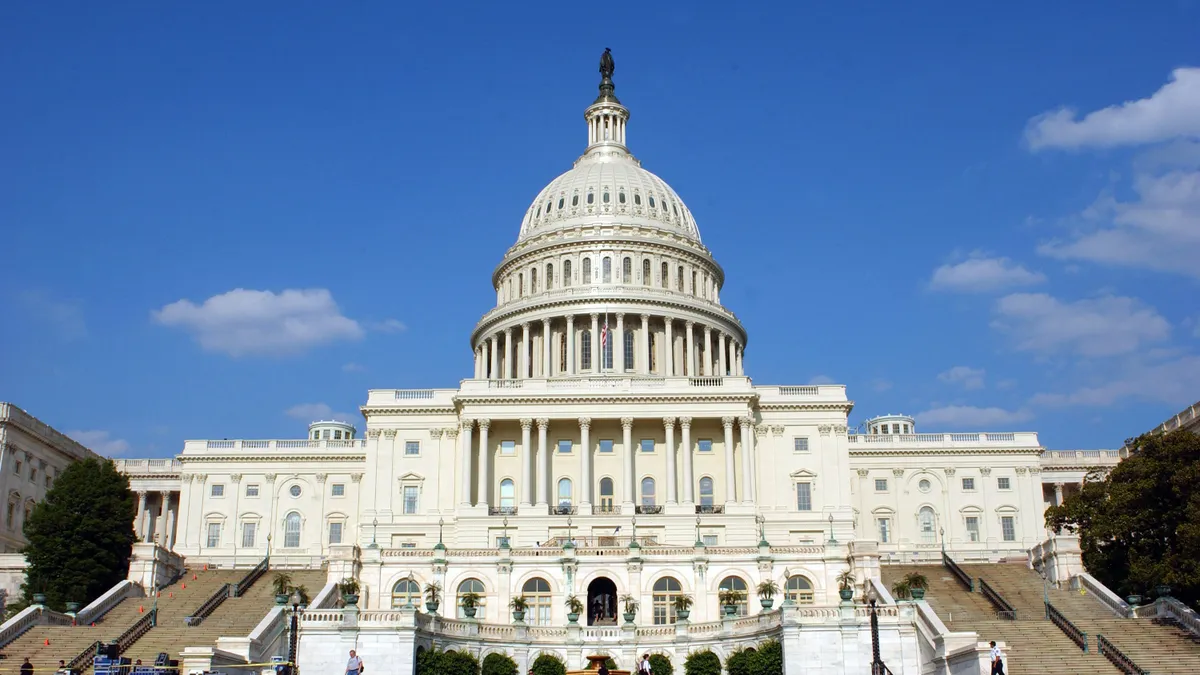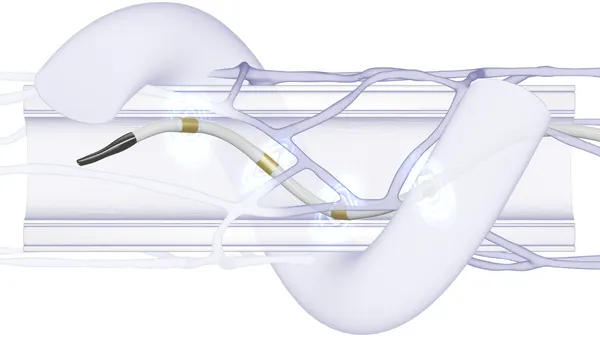Dive Brief:
- Sen. Richard Burr, R-N.C., on Tuesday took the FDA to task for missing the Jan. 15 deadline for providing Congress with recommendations for a fifth Medical Device User Fee Amendments (MDUFA) agreement and for not publishing minutes of all the meetings with industry that led to the deal.
- During Tuesday's user fee hearing before the Senate Health, Education, Labor and Pensions committee, ranking member Burr also railed against the FDA for failing to fully meet the terms of its commitments made under the the previous MDUFA IV agreement. The senator said the agency was three months late in finalizing the MDUFA V deal because the FDA's Center for Devices and Radiological Health "refused to acknowledge that the agency didn’t meet all of its goals from the last round and, now, the FDA wants double the money for mediocre performance improvements and, for certain devices, longer review times."
- CDRH Director Jeff Shuren told the Senate committee he regrets missing the deadline for delivering the MDUFA V recommendations to Congress and acknowledged the center failed to meet some MDUFA IV performance goals due to its COVID-19 workload and limited resources. However, Shuren insisted the "long deliberations" have produced a "strong, thoughtful" MDUFA V agreement that if enacted will "advance medical device innovation, while increasing accountability for the program."
Dive Insight:
The MDUFA V agreement is nearing the end of the legislative process, following last month's House subcommittee hearing in which lawmakers grilled the FDA over the long delays in reaching a deal with industry. The Senate health committee held its first hearing earlier this month with industry officials.
Under the MDUFA V deal with industry, the agency would receive $1.78 billion in user fees from 2023 to 2027, which could increase to $1.9 billion if the FDA meets certain performance goals.
Tuesday's second Senate hearing, which included the FDA's three center directors, was held to consider separate commitment letters submitted by the agency and industry for the reauthorization of the prescription drug, generic drug, biosimilar and medical device user fee agreements, respectively.
However, the agency's MDUFA V agreement was the only one to miss the congressional deadline.
"I personally regret that we missed the statutory deadline to deliver our recommendations to Congress, an obligation that I and the entire agency take seriously," CDRH's Shuren testified.
However, Burr criticized CDRH for its lack of transparency by not publishing minutes of MDUFA V meetings with industry in a timely manner. The senator noted that by law the FDA is required to publicly post such meeting minutes of negotiations prior to the agency sending its MDUFA commitment letter to Congress.
"Today, there are no meeting minutes from any meeting since February of this year. You posted minutes for nine meetings between September and February over the weekend. We're still missing the minutes from seven meetings," Burr said.
Shuren assured the committee it would post all the remaining meeting minutes this week, which the FDA subsequently updated on its website. The CDRH chief blamed the delay on negotiations with industry.
"It is a negotiation in and of itself with the industry parties. And, you've seen how those negotiations go, a lot of diverse opinions," Shuren said. "The big focus was trying to get the deal done and get the minutes afterwards. We agree with you. It's hard for you to make informed decisions without those meeting minutes."
Responding to criticism at AdvaMed's annual conference in September about the months-long delay in making minutes from the MDUFA V meetings publicly available, Shuren at that time said the FDA would "certainly have additional meeting minutes out in the near future” though he didn't commit to a timeline.
Shuren on Tuesday said the FDA plans to "have the rest of the meeting minutes out" by the end of this week, and to have the final MDUFA V package to Congress by the end of next week.
Still, Burr telegraphed that congressional authorization of the MDUFA V deal may not go smoothly for the agency.
“More money. Lower expectations of accountability. No accountability for past failures ... And you expect Congress to rubber stamp these agreements? My friends, I don’t think so," the senator said. “The more you use the user fees process to bully dollars out of industry, holding them hostage in the negotiating room, the less accountable FDA is to the American people and their elected representatives."
Burr said the user fee legislation that will come before the Senate committee for a vote in just a few weeks "must hold the FDA accountable for its actions and inactions."
Sen. Patty Murray, D-Wash., chair of the Senate health committee, emphasized that Congress has regularly reauthorized the user fee programs in a bipartisan way and looks forward to working with Burr and other members to get it done in a timely manner.
“Because it should be unthinkable that, after two years when FDA’s work has been more important than ever, we would fail to get this done and force the agency to send pink slips," Murray said. "But it should also be unthinkable that we would let this moment slip by without looking carefully at what is, and what isn’t, working at FDA."














